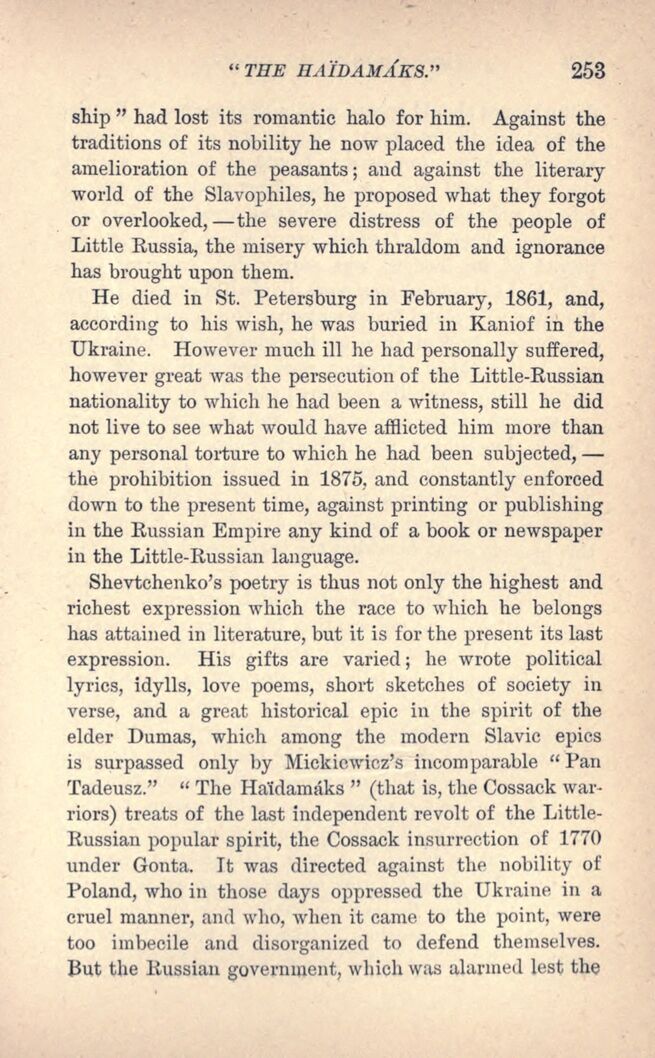
Full resolution (JPEG) - On this page / på denna sida - Impressions of Russian Literature - IV

<< prev. page << föreg. sida << >> nästa sida >> next page >>
Below is the raw OCR text
from the above scanned image.
Do you see an error? Proofread the page now!
Här nedan syns maskintolkade texten från faksimilbilden ovan.
Ser du något fel? Korrekturläs sidan nu!
This page has been proofread at least once.
(diff)
(history)
Denna sida har korrekturlästs minst en gång.
(skillnad)
(historik)
“Hetmanship” had lost its romantic halo for him. Against the
traditions of its nobility he now placed the idea of the
amelioration of the peasants; and against the literary
world of the Slavophiles, he proposed what they forgot
or overlooked, — the severe distress of the people of
Little Russia, the misery which thraldom and ignorance
has brought upon them.
He died in St. Petersburg in February, 1861, and,
according to his wish, he was buried in Kaniof in the
Ukraine. However much ill he had personally suffered,
however great was the persecution of the Little-Russian
nationality to which he had been a witness, still he did
not live to see what would have afflicted him more than
any personal torture to which he had been subjected, —
the prohibition issued in 1875, and constantly enforced
down to the present time, against printing or publishing
in the Russian Empire any kind of a book or newspaper
in the Little-Russian language.
Shevtchenko’s poetry is thus not only the highest and
richest expression which the race to which he belongs
has attained in literature, but it is for the present its last
expression. His gifts are varied; he wrote political
lyrics, idylls, love poems, short sketches of society in
verse, and a great historical epic in the spirit of the
elder Dumas, which among the modern Slavic epics
is surpassed only by Mickiewicz’s incomparable “Pan
Tadeusz.” “The Haïdamáks” (that is, the Cossack
warriors) treats of the last independent revolt of the
Little-Russian popular spirit, the Cossack insurrection of 1770
under Gonta. It was directed against the nobility of
Poland, who in those days oppressed the Ukraine in a
cruel manner, and who, when it came to the point, were
too imbecile and disorganized to defend themselves.
But the Russian government, which was alarmed lest the
<< prev. page << föreg. sida << >> nästa sida >> next page >>